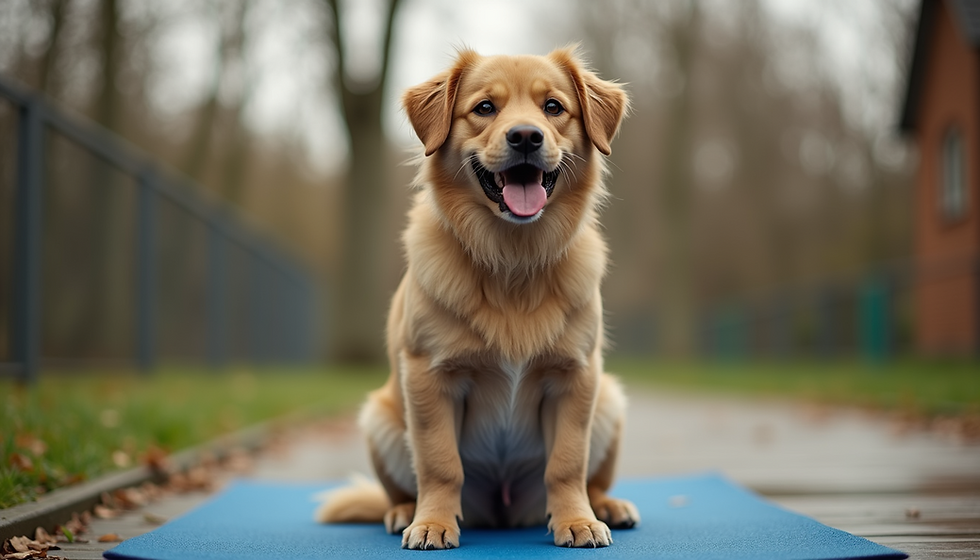Mastering the Art of Puppy Training: Unveiling Secrets to a Well-Behaved Companion
- Jessica Ranieri
- Jun 10, 2025
- 3 min read
Training a puppy is one of the most fulfilling experiences you can have as a pet owner, but it often comes with its own set of challenges. Transforming a lively, inquisitive furball into a well-mannered friend requires patience, consistency, and the right strategies. By understanding the basics of puppy training, you can foster a strong bond with your new companion. Here are effective tips and strategies to help you train your puppy successfully.
Understanding Your Puppy’s Behavior
Before you start training, it is crucial to grasp your puppy’s natural behaviors. Puppies are curious creatures, and actions like chewing, barking, and jumping typically stem from their desire to explore or engage. For example, chewing is often a way for puppies to relieve teething discomfort. Recognizing these behaviors allows you to redirect unwanted actions and teach your puppy appropriate responses.
Additionally, your puppy may show signs of anxiety when faced with new environments or social situations. For instance, if your puppy hides or tucks its tail, they might be feeling scared. By observing their body language, you can tailor your training approach to meet their individual needs and comfort levels.
Establishing a Training Routine
Consistency is essential for effective puppy training. Establishing a structured daily routine helps your puppy know what to expect, which, in turn, reinforces good habits. Try to schedule training sessions during times when your puppy is most alert and energetic, like just after a play session.
Keep training sessions short, around 5 to 10 minutes, to maintain your puppy’s interest. During these sessions, focus on teaching foundational commands like “sit,” “stay,” and “come.” For example, when your puppy successfully sits on command, reward them with a small treat or enthusiastic praise. This positive reinforcement helps solidify the commands in your puppy’s mind.
Socialization: A Crucial Element
Socialization is a fundamental part of your puppy's development. It sets the stage for them to become a well-adjusted adult dog. Introduce your puppy to various people, environments, and other pets in a safe and positive manner. For instance, letting your puppy meet different breeds of dogs can help lessen the fear of unfamiliar animals, leading to better behavior as they grow.
Consider enrolling your puppy in a socialization class. According to the American Kennel Club, early socialization can significantly reduce the risk of behavioral issues later in life. Puppies that experience a variety of environments and situations from a young age are often less fearful and more adaptable.
Utilizing Positive Reinforcement
Positive reinforcement is a highly effective training method that encourages good behavior by rewarding it. Instead of punishing your puppy for undesired actions, focus on redirecting their attention and rewarding the positive ones. For example, if your puppy starts to chew on furniture, redirect them to a chew toy and reward them when they choose to play with that instead.
This approach not only builds trust between you and your puppy but also strengthens your bond. Use treats, praise, or a favorite toy as rewards during training. This will keep your puppy motivated and excited to learn.
Common Training Challenges
Every puppy is unique, and you may encounter specific training challenges along the way. Common issues include jumping, excessive barking, and destructive chewing. To tackle these behaviors, consistently redirect your puppy to acceptable alternatives. For example, if your puppy insists on jumping, teach them to sit when greeting guests, rewarding them for remaining grounded.
If barking is an issue, find ways to redirect their attention during those moments. Playtime or practicing commands can help shift their focus, and rewarding them during quiet moments can reinforce this desirable behavior.
The Journey Ahead
Training your puppy is more than just teaching obedience; it is about building a strong, loving relationship with your furry companion. By understanding their behavior, setting up a consistent routine, prioritizing socialization, and applying positive reinforcement techniques, you can guide your puppy toward becoming a well-mannered adult dog.
Approach this rewarding journey with patience and enthusiasm, and you will see your puppy grow into a cherished member of your family.





Comments